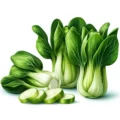Endive, a leafy green vegetable from the chicory family, is often underappreciated but deserves a spotlight for its incredible health benefits. With its crisp texture and slightly bitter taste, endive not only enhances salads and other dishes but also offers a wealth of nutrients that support overall well-being. Let’s explore the nutritional content and health benefits of endive, and why incorporating this vegetable into your diet can be a game-changer for your health.
Nutritional Content
Endive is a low-calorie vegetable packed with essential vitamins, minerals, and phytonutrients. A 100-gram serving of raw endive typically provides:
- Vitamins:
-
- Vitamin A: Endive is rich in vitamin A, crucial for maintaining healthy vision, immune function, and skin health.
- Vitamin K: High in vitamin K, endive supports bone health and aids in blood clotting.
- Vitamin C: This antioxidant helps boost the immune system, promotes skin health, and aids in the absorption of iron.
- Folate: Essential for DNA synthesis and repair, folate is particularly important for pregnant women and in reducing the risk of neural tube defects.
- Minerals:
-
- Potassium: Helps regulate blood pressure and supports cardiovascular health.
- Calcium: Important for maintaining strong bones and teeth, and plays a role in muscle function and nerve signaling.
- Magnesium: Involved in over 300 biochemical reactions in the body, including energy production and muscle function.
- Iron: Essential for the production of hemoglobin, which carries oxygen in the blood.
- Phytonutrients:
-
- Kaempferol and Quercetin: These flavonoids possess anti-inflammatory and antioxidant properties that can help reduce the risk of chronic diseases.
- Dietary Fiber: Endive is an excellent source of dietary fiber, promoting digestive health, aiding in weight management, and helping to regulate blood sugar levels.
- Macronutrients: Endive is low in carbohydrates and contains minimal fats, making it a great addition to a balanced diet without adding excess calories.
Health Benefits
- Heart Health: The potassium and dietary fiber in endive support cardiovascular health by helping to regulate blood pressure and cholesterol levels. Additionally, the antioxidant properties of its phytonutrients can reduce inflammation and oxidative stress, which are risk factors for heart disease.
- Bone Health: High levels of vitamin K and calcium in endive contribute to maintaining strong and healthy bones. Vitamin K is essential for bone mineralization and can help prevent osteoporosis, particularly in older adults.
- Digestive Health: The fiber content in endive promotes regular bowel movements and supports a healthy gut microbiome. This can help prevent constipation and other digestive issues, while also contributing to overall gut health.
- Immune Support: Vitamin C in endive boosts the immune system by stimulating the production of white blood cells and acting as an antioxidant to protect cells from damage.
- Weight Management: Being low in calories and high in fiber, endive can help you feel full and satisfied, making it a great choice for those looking to manage their weight. The fiber content slows digestion, reducing appetite and preventing overeating.
- Anti-inflammatory and Antioxidant Properties: The flavonoids kaempferol and quercetin found in endive have been shown to reduce inflammation and act as antioxidants, protecting the body from free radical damage and reducing the risk of chronic diseases such as cancer and cardiovascular disease.
Culinary Tips and Considerations
To maximize the nutritional benefits of endive, consider these culinary tips:
- Salads: Endive adds a delightful crunch and slightly bitter flavor to salads. Pair it with sweet fruits like apples or oranges to balance the taste.
- Grilling or Roasting: Cooking endive can mellow its bitterness and bring out a rich, nutty flavor.
- Smoothies: Blend raw endive with fruits and other vegetables for a nutrient-dense smoothie.
- Sauteing: Lightly sauté endive with garlic and olive oil for a simple and nutritious side dish.
Conclusion
Endive may not be the most popular vegetable, but its nutritional profile and health benefits make it a worthy addition to any diet. From supporting heart and bone health to aiding in digestion and weight management, endive offers a range of advantages that can help you achieve optimal health. Incorporating endive into your meals can provide essential vitamins, minerals, and phytonutrients that support your body’s functions and contribute to long-term well-being.





